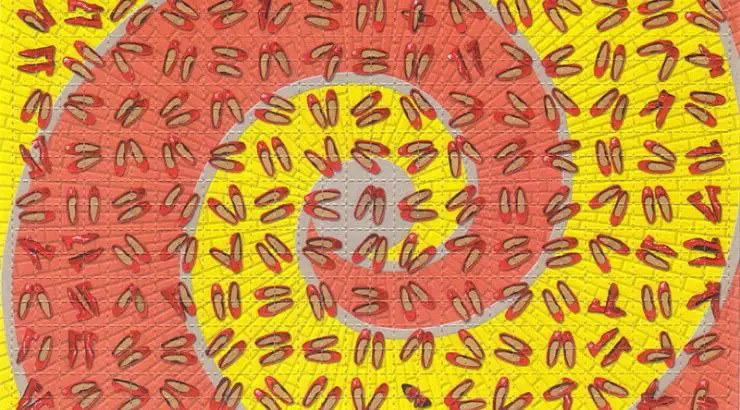Echter
de kans dat psychedelische drugs als cannabis* in de hele VS verboden zullen worden is te
verwaarlozen, zeker nu de staten die e.e.a. hebben vrijgegeven,
binnenlopen met de belastingen die worden geheven op die middelen.....
In de EU
is de wetenschap al langer bezig zaken als MDMA, de werkzame stof in XTC, te verwerken als microdosis, hetzelfde geldt voor
truffels en paddo's met de werkzame stof psilocybine, waar voor beide middelen al mensen zijn overgestapt van
psychofarmaca op dit soort middelen (zoals gezegd met microdoseringen). Microdoseringen met psilocybine vergroten o.a. de creativiteit en empathie
Uit begin 80er jaren van de vorige eeuw weet ik dat mensen experimenteerden met microdoseringen LSD, volgens de gebruikers destijds een probaat middel tegen depressies en psychoses.
Het volgende artikel over microdosering met ketamine in de hoofdrol (wordt gebruikt in VS ziekenhuizen), werd geschreven door Elias Marat en eerder geplaatst op The Mind Unleashed, door mij overgenomen van Anti-Media:
Uit begin 80er jaren van de vorige eeuw weet ik dat mensen experimenteerden met microdoseringen LSD, volgens de gebruikers destijds een probaat middel tegen depressies en psychoses.
Het volgende artikel over microdosering met ketamine in de hoofdrol (wordt gebruikt in VS ziekenhuizen), werd geschreven door Elias Marat en eerder geplaatst op The Mind Unleashed, door mij overgenomen van Anti-Media:
Psychedelic Drugs Are Finally Being Used to Treat Depression in US Hospitals
Scientists
and psychiatrists are embracing psychedelic drugs as “game-changers”
in the fight to treat depression.
August
19, 2019 at 7:44 am
Written
by The
Mind Unleashed
(TMU) — As
the country increasingly sheds its prohibitionist stereotypes and
misconceptions about psychedelic drugs, scientists and psychiatrists
are increasingly embracing their potent qualities as “game-changers”
in the fight to treat mental health disorders.
The
new trend unfolding across the U.S. has converted drugs like
ketamine—once known primarily as a recreational drug used at raves
and underground concerts—into a powerful tool for mental health
professionals in the Midwest, according
to the Times
of Northwest Indiana.
Dr.
Joseph Fanelli, a psychiatrist who is the medical director for
behavioral health services at St. Catherine Hospital in East Chicago,
told the Times:
“It’s a pretty exciting time that we’ve entered over the last few years.”
Continuing,
Fanelli noted that in the case of ketamine, researchers have found a
drug that kicks in almost immediately versus the weeks that
antidepressants take to make an impact. Ketamine treatment is “one
of the most rapid, dramatic treatments we’ve had and been able to
use in a long time,”
he noted.


Ketamine
is a strong sedative and dissociative that has been used in the
veterinary and medical fields since the 1960s, but it has also been
known as a club drug for nearly just as long.
Numerous studies in
the recent past have shown how ketamine can be a powerful treatment
option for major depression. And in March, the Food and Drug
Administration (FDA) announced the
approval of a ketamine-based nasal spray for treating depression that
was patented by Johnson & Johnson, as previously reported by
the Mind
Unleashed.
The
drug, called esketamine,
has a slight chemical variation from the original substance and must
be administered in a doctor’s office under tight monitoring due to
the potential for hallucinations. However, Fanelli noted that any
such dose is far lower than the amount typically used on the streets.
Fanelli
noted:
“The effect patients get when treated with it is rarely anything like a high …Patients might feel foggy-headed or lightheaded. The main thing we watch them for is to make sure they’re fully alert, not sedated.”
Many
of the patients leave his office saying things like “Maybe
I felt something, I don’t know,”
due to the fact that “it’s
not really a pronounced effect”
despite esketamine’s potency as an antidepressant. The drug is
being given in conjunction with oral antidepressants for those who
felt their previous antidepressants no longer offered relief or whose
effects wore off.
Fanelli
added that the treatment’s length and intensity depends on the
individual patient. He explained:Dr. D. Alam
“Some people have a course of ketamine of two or three times a week for maybe two to four weeks, then they may be fine without the need for anything else … Some people have to have it continued, once a week or month; sometimes less often or more often.”
Dr.
Danesh Alam, medical director of behavioral health for Northwestern
Medicine Central DuPage Hospital in Illinois, said that ketamine
could one day become a “first
line of intervention”
for suicidal patients. He noted:
“It’s going to probably change the way we practice psychiatry and medicine.”
Alam
warned that despite the FDA’s approval for esketamine, government
restrictions continue to make it difficult to research the
psychiatric benefits of psychedelic drugs, along with marijuana,
while other countries are able to conduct such research. He said:
“It’s hard to study (drugs) if you can’t do it with federal support.”
Indeed,
a growing body of research has laid out the benefits of psychedelic
drugs such as magic mushrooms. Recent studies have
shown how a microdose of psilocybin—far from the level needed for a
full-blown trip—actually increases the creativity
and empathy of
participants. Advocates note that psilocybin has also shown great
promise in psychotherapeutic settings.
Alam
sees the current moment as “a
challenging and exciting time in our field: challenging because of
how society is affected by the opioid crisis, the suicide crisis, and
I’d add in the trauma crisis. The exciting part is new treatments
may help us treat the disorders associated with all of these
conditions.”
======================================
* Cannabis, ook een psychedelisch middel, dat in diverse verwerkingen al wordt gebruikt tegen een groot aantal klachten, o.a. klachten bij ernstige aandoeningen als kanker.
